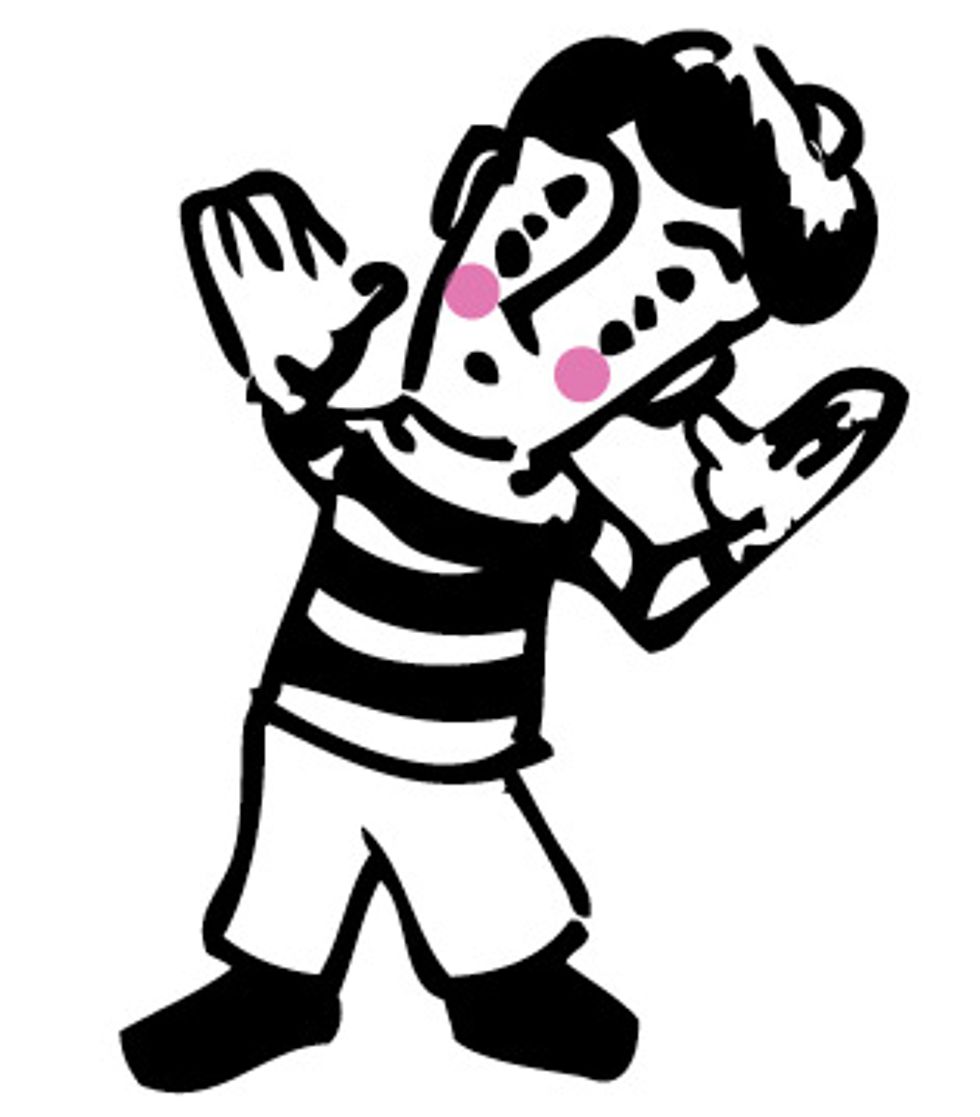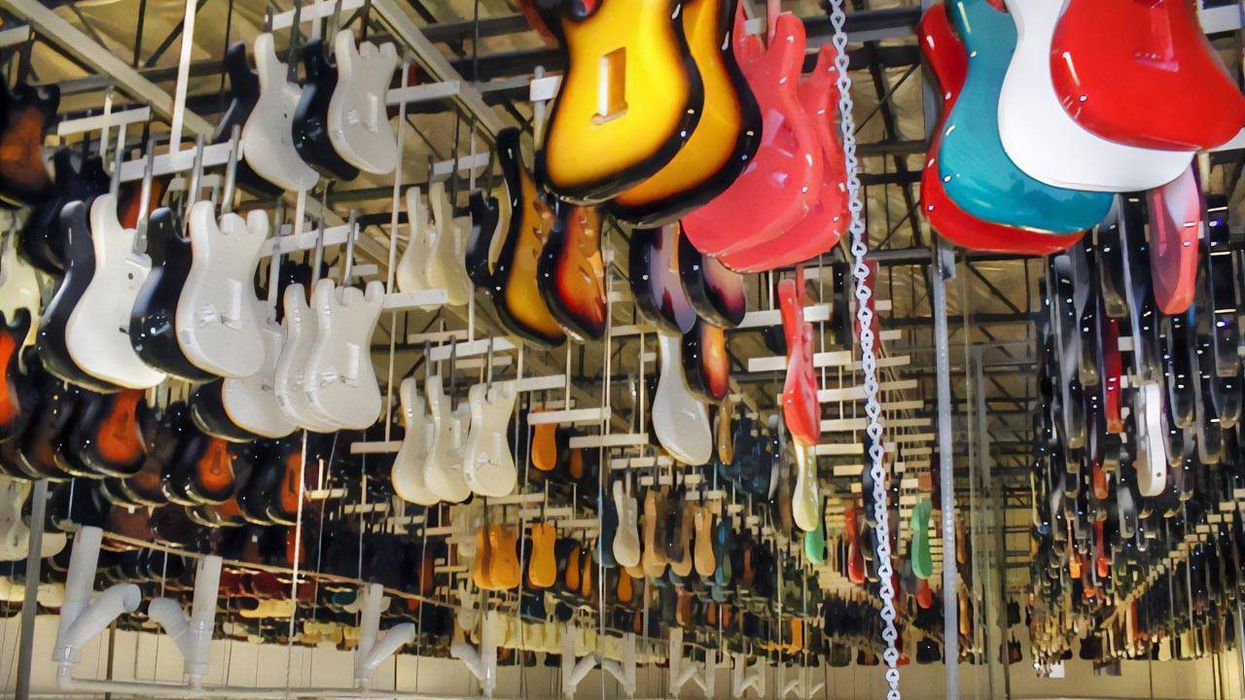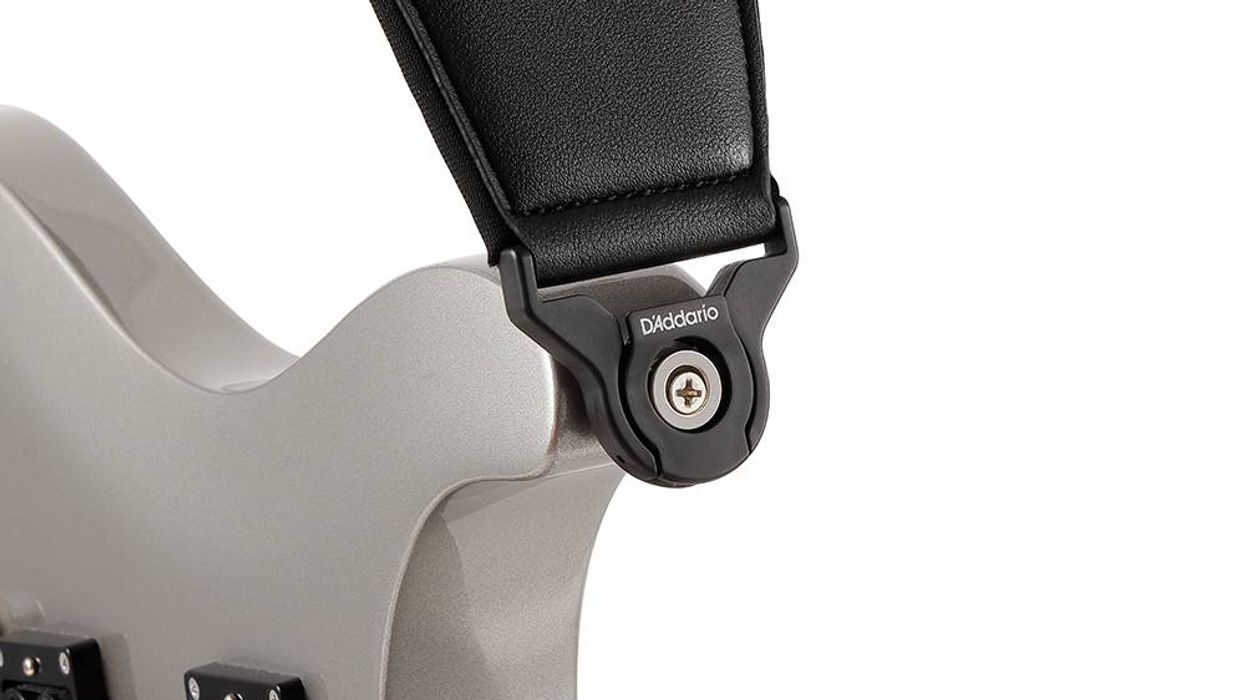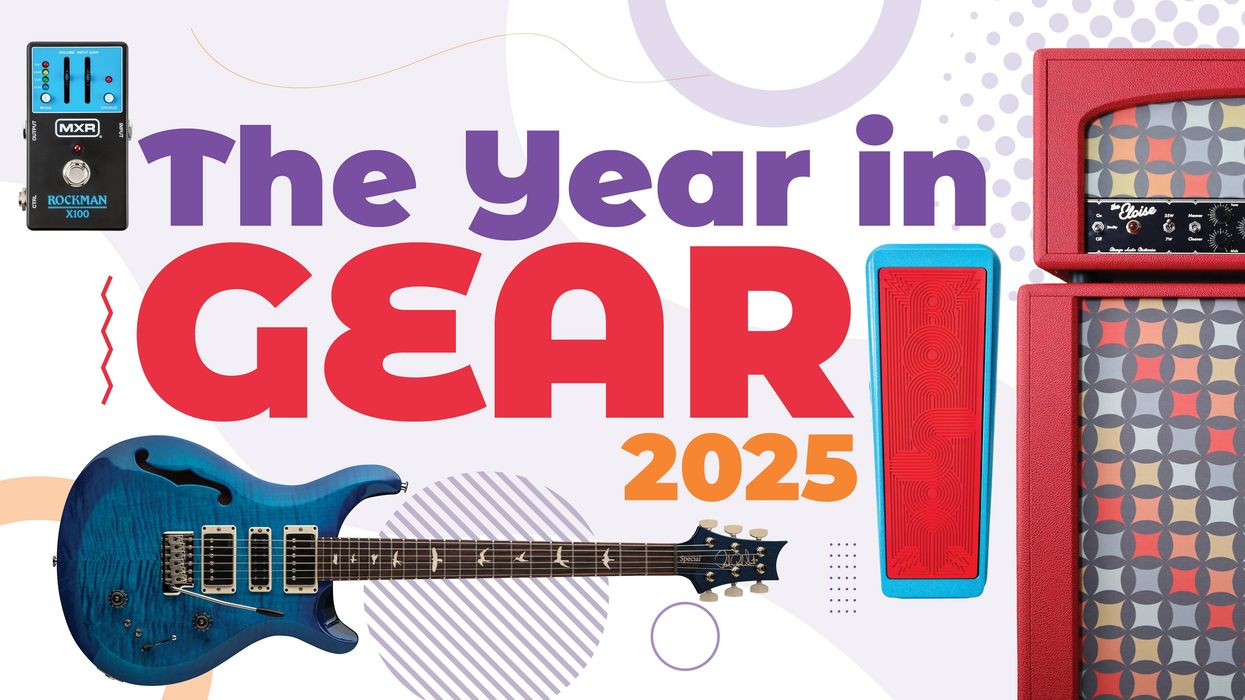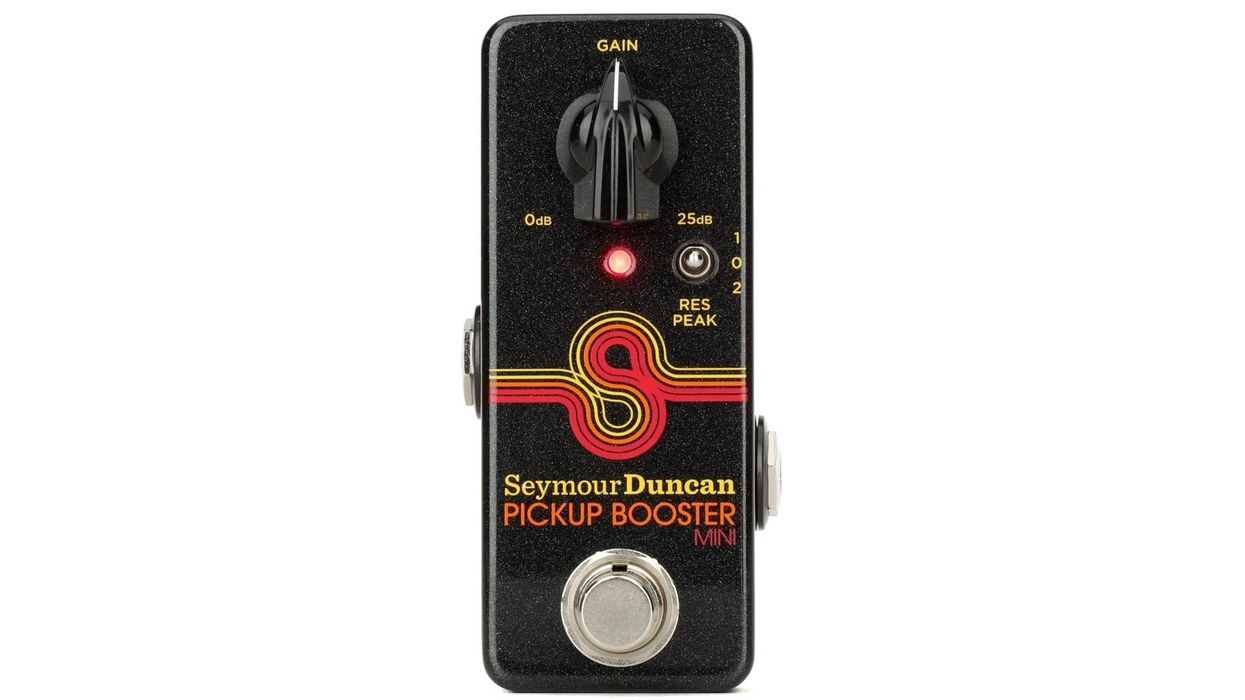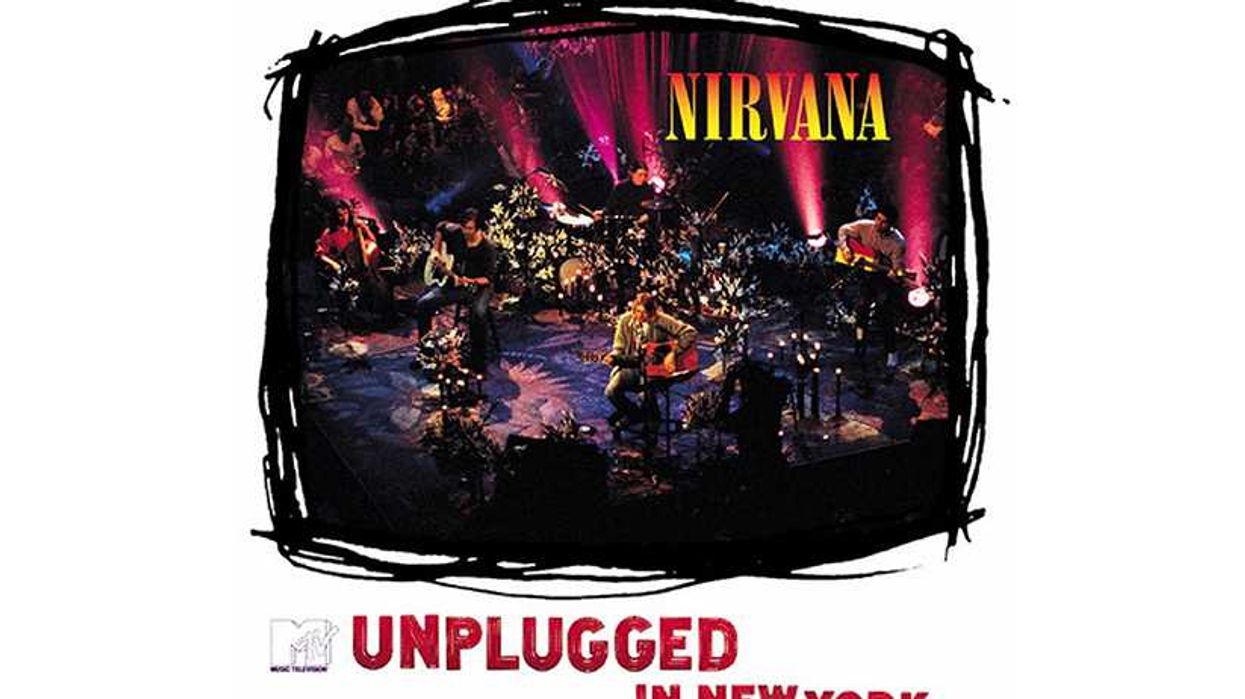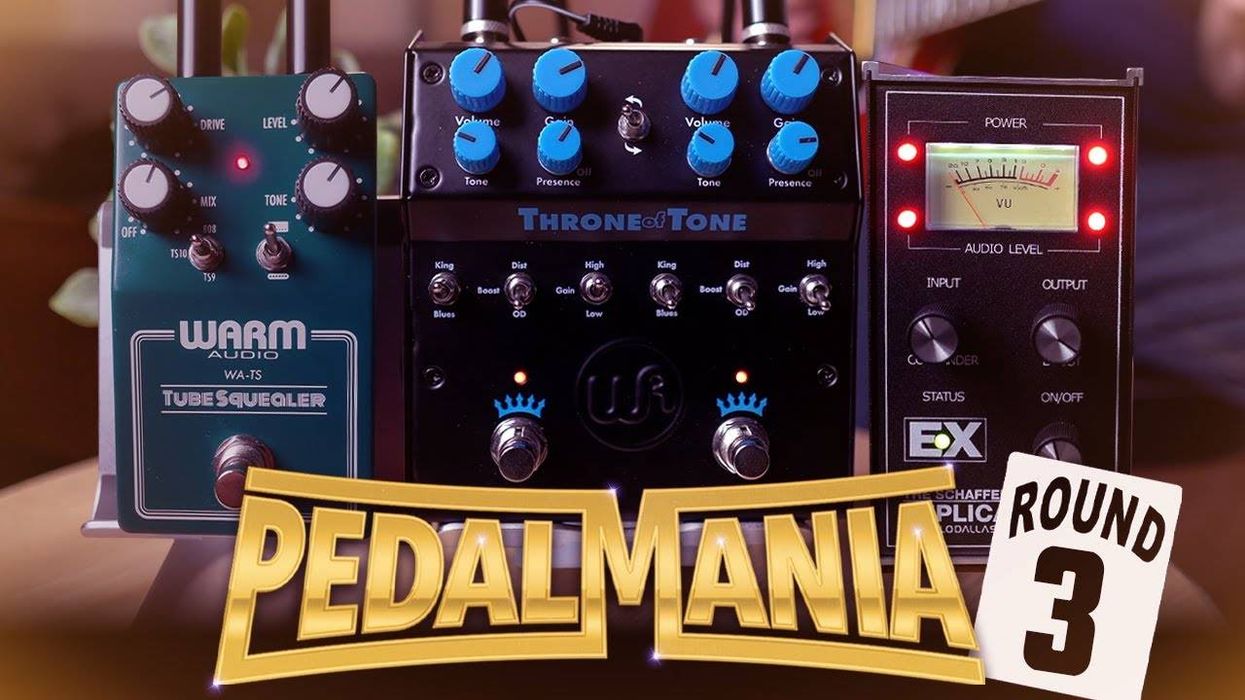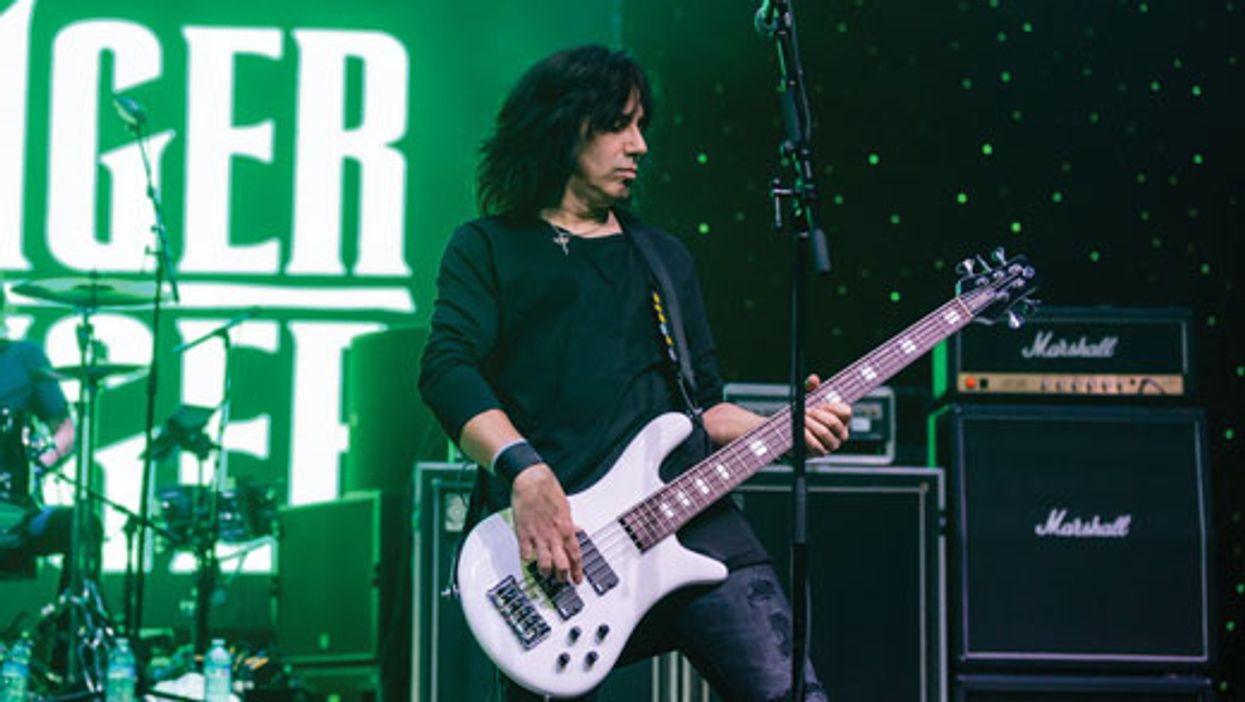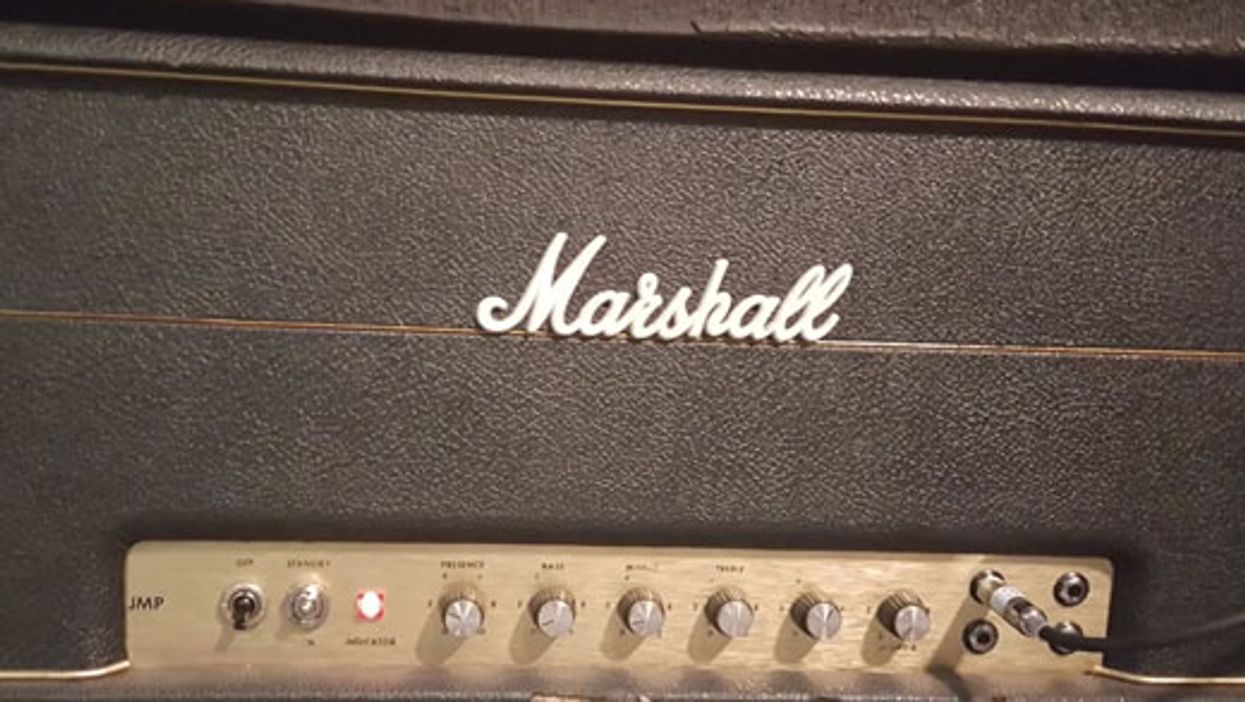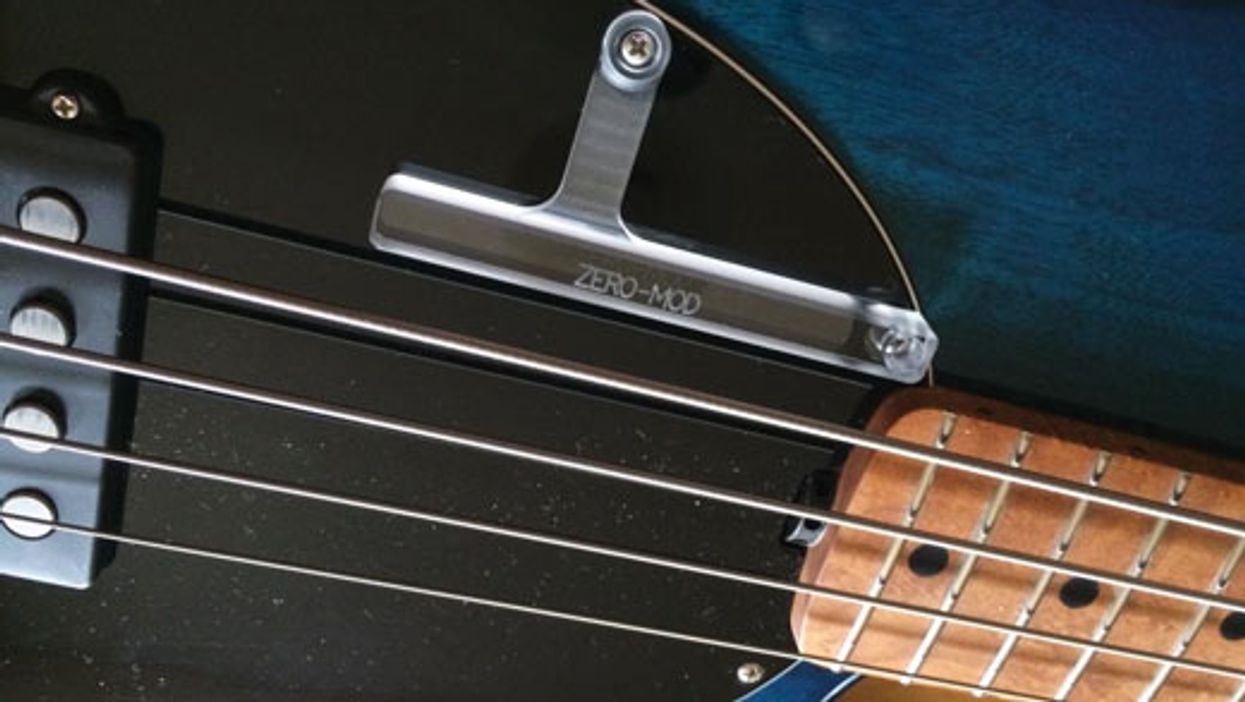If I were to pick a profession
in the performing arts more
difficult than being a professional
musician, it would be that of a
stand-up comic. This is open to
debate—because mimes are a
close second—but think about
how terrifyingly difficult it is to
make it in that business: Just like
musicians, comics drive themselves
all over the country, staying
in crappy hotels so they can play
one- or two-nighters. But comics
have to do it all alone. And inspiration
and motivation can be hard
to come by without any outside
help. That’s a little disheartening.
Luckily, we musicians have chosen a path that puts us in a constant working relationship with many people. The stand-up comic walks into a club and does his thing. Not much needed there. We musician types, on the other hand, need a team of people to get things moving. The team may be as small as you and your front-of-house engineer, or it could be of Rolling Stones’ proportion, with more than 200 people on the road. The point is, no matter how hard you try, you can’t do it all by yourself. And here’s the thing: Being with others breeds new ways of thinking.
Once in a while, you’ll find a crew of people that make every night great. There’s nothing like a band and crew that can put it all together and find a flow. I was once told that the definition of “groove” is the path of least resistance. Whoever came up with that was right on when talking about music, and they were especially correct when it comes to a “working” groove. When all you have to do is play and not worry about anything else, it really makes for a good night.
But that just scratches the surface of how valuable a good tour crew really is—and how they can help you become better. As we strive to improve our sound or our playing, sometimes we overlook the most obvious source of illumination—our own crew. There is a wealth of information sitting right in front of you. Just talk to the guys you play with. Something as simple as a conversation over coffee can change it all for you. And since they are not bass players, it makes it that much better. Talking with the different people in your touring entourage can open your eyes and ears to a whole new approach to your instrument—even if they may not be the first ones you would normally talk about music to.
Let’s take the front-of-house engineer, for example. You may not realize it, but he is the most important person in your band. A good one is worth his weight in gold, and a great one is rare indeed. Sadly, the crowd has no idea why your band sounds good or bad, and it is all in his hands. Now, listen to him. If he mixes well, then you will know pretty quickly, and that means he knows a thing or two about sound. Like your sound. I love talking tone with engineers. We talk about everything from frequencies and line arrays to harmonic overtones and standing bass waves (all of which helps in my studio setup as well). This isn’t the FOH engineer’s first gig either, so hearing stories of other bass players’ approaches and setups is enlightening.
Another guy I like to talk to is our bus driver. If you aren’t on a bus, then I apologize for bringing it up, but these guys really are great. Drivers sometimes change from week to week, so I’ll sit in the jump seat and start up a conversation, and hopefully learn a little something. The older ones seem like they’ve been driving forever, and time in this business makes for better stories. Our last driver was buddies with Roy Orbison and was in the studio for the “Oh, Pretty Woman” session. He also toured and played bass for 20 years, but to anyone else he’s just the quiet driver getting us from point A to point B. Sometimes you just never know. All drivers say the same thing—“I’ll be here a lot longer than this artist will.” And sadly, it’s almost always true. There’s another lesson in there.
But if you want to get back to the players in your band and talk music, start with your drummer. The two of you are the foundation, and musically you should be on the same page. If your favorite music and his aren’t the same, then open your ears and see what makes the other player tick. I’ve heard of guys trading tapes (or loading and swapping flash drives) and then getting back together to compare notes. It’s this musical growth that brings the rhythm section closer together and makes for more fun at soundcheck. Again, hitting that groove is a special thing.
Another unlikely source of musical knowledge can be the fans. They do come out and see you play, so hopefully you appreciate their taste. I am always hearing from music fans about new bands and players, and it almost never fails that after a few minutes with a true music listener, I discover songs I’ve never heard before. All of it goes in the melting pot.
So branch out and ask questions, especially of the people you work with but never thought to ask. You may be surprised at the things you discover. Some of my best bass advice has come from the craziest sources. And, more importantly, you may even find out that pesky monitor engineer is a pretty good guy after all and that he knows a thing or two about vintage P basses. It doesn’t hurt to find out. And if you make a new friend along the way, even better. If all else fails, you can both go to mime school.
 Steve Cook is currently
fortifying himself
in the back of a tour
bus, awaiting the low-end
revolution. He can
be reached at info@shinybass.com until the
coast is clear.
Steve Cook is currently
fortifying himself
in the back of a tour
bus, awaiting the low-end
revolution. He can
be reached at info@shinybass.com until the
coast is clear.
Luckily, we musicians have chosen a path that puts us in a constant working relationship with many people. The stand-up comic walks into a club and does his thing. Not much needed there. We musician types, on the other hand, need a team of people to get things moving. The team may be as small as you and your front-of-house engineer, or it could be of Rolling Stones’ proportion, with more than 200 people on the road. The point is, no matter how hard you try, you can’t do it all by yourself. And here’s the thing: Being with others breeds new ways of thinking.
Once in a while, you’ll find a crew of people that make every night great. There’s nothing like a band and crew that can put it all together and find a flow. I was once told that the definition of “groove” is the path of least resistance. Whoever came up with that was right on when talking about music, and they were especially correct when it comes to a “working” groove. When all you have to do is play and not worry about anything else, it really makes for a good night.
But that just scratches the surface of how valuable a good tour crew really is—and how they can help you become better. As we strive to improve our sound or our playing, sometimes we overlook the most obvious source of illumination—our own crew. There is a wealth of information sitting right in front of you. Just talk to the guys you play with. Something as simple as a conversation over coffee can change it all for you. And since they are not bass players, it makes it that much better. Talking with the different people in your touring entourage can open your eyes and ears to a whole new approach to your instrument—even if they may not be the first ones you would normally talk about music to.
Let’s take the front-of-house engineer, for example. You may not realize it, but he is the most important person in your band. A good one is worth his weight in gold, and a great one is rare indeed. Sadly, the crowd has no idea why your band sounds good or bad, and it is all in his hands. Now, listen to him. If he mixes well, then you will know pretty quickly, and that means he knows a thing or two about sound. Like your sound. I love talking tone with engineers. We talk about everything from frequencies and line arrays to harmonic overtones and standing bass waves (all of which helps in my studio setup as well). This isn’t the FOH engineer’s first gig either, so hearing stories of other bass players’ approaches and setups is enlightening.
Another guy I like to talk to is our bus driver. If you aren’t on a bus, then I apologize for bringing it up, but these guys really are great. Drivers sometimes change from week to week, so I’ll sit in the jump seat and start up a conversation, and hopefully learn a little something. The older ones seem like they’ve been driving forever, and time in this business makes for better stories. Our last driver was buddies with Roy Orbison and was in the studio for the “Oh, Pretty Woman” session. He also toured and played bass for 20 years, but to anyone else he’s just the quiet driver getting us from point A to point B. Sometimes you just never know. All drivers say the same thing—“I’ll be here a lot longer than this artist will.” And sadly, it’s almost always true. There’s another lesson in there.
But if you want to get back to the players in your band and talk music, start with your drummer. The two of you are the foundation, and musically you should be on the same page. If your favorite music and his aren’t the same, then open your ears and see what makes the other player tick. I’ve heard of guys trading tapes (or loading and swapping flash drives) and then getting back together to compare notes. It’s this musical growth that brings the rhythm section closer together and makes for more fun at soundcheck. Again, hitting that groove is a special thing.
Another unlikely source of musical knowledge can be the fans. They do come out and see you play, so hopefully you appreciate their taste. I am always hearing from music fans about new bands and players, and it almost never fails that after a few minutes with a true music listener, I discover songs I’ve never heard before. All of it goes in the melting pot.
So branch out and ask questions, especially of the people you work with but never thought to ask. You may be surprised at the things you discover. Some of my best bass advice has come from the craziest sources. And, more importantly, you may even find out that pesky monitor engineer is a pretty good guy after all and that he knows a thing or two about vintage P basses. It doesn’t hurt to find out. And if you make a new friend along the way, even better. If all else fails, you can both go to mime school.
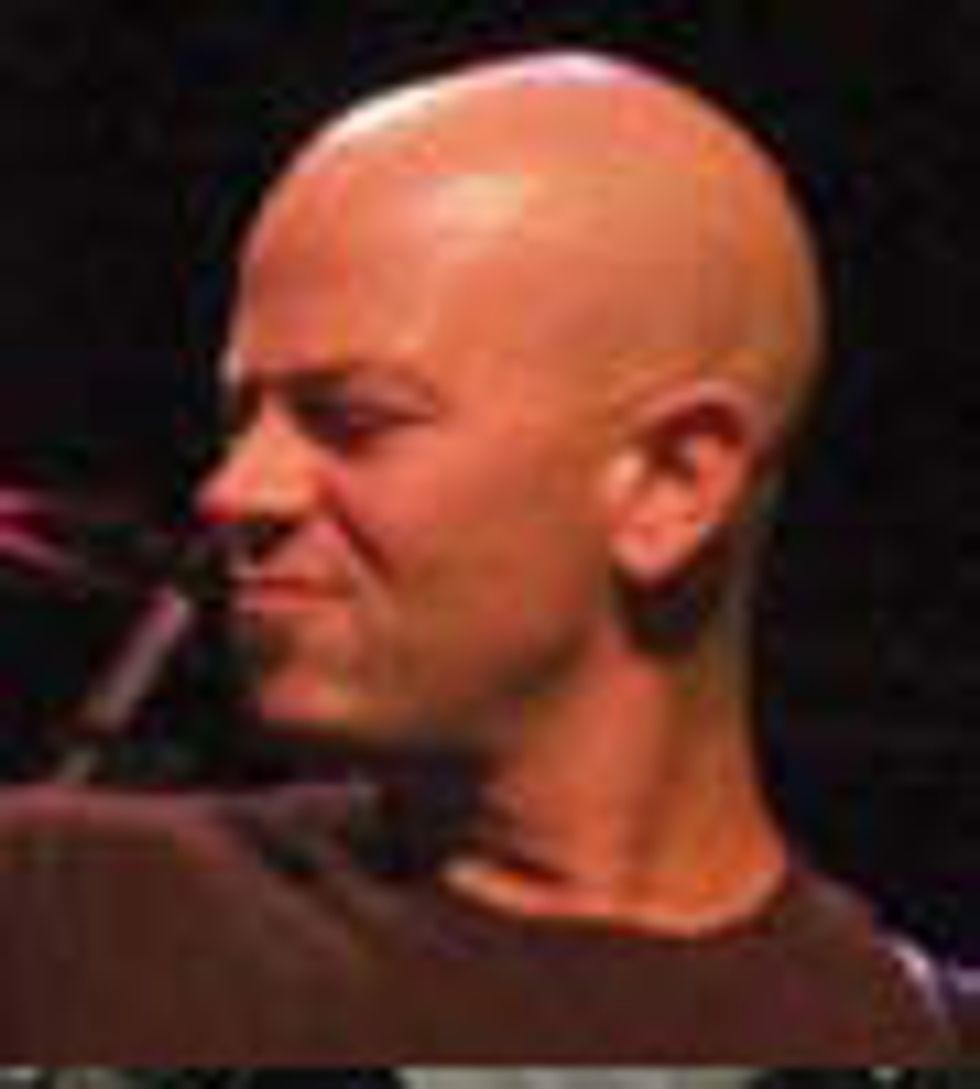 Steve Cook is currently
fortifying himself
in the back of a tour
bus, awaiting the low-end
revolution. He can
be reached at info@shinybass.com until the
coast is clear.
Steve Cook is currently
fortifying himself
in the back of a tour
bus, awaiting the low-end
revolution. He can
be reached at info@shinybass.com until the
coast is clear.